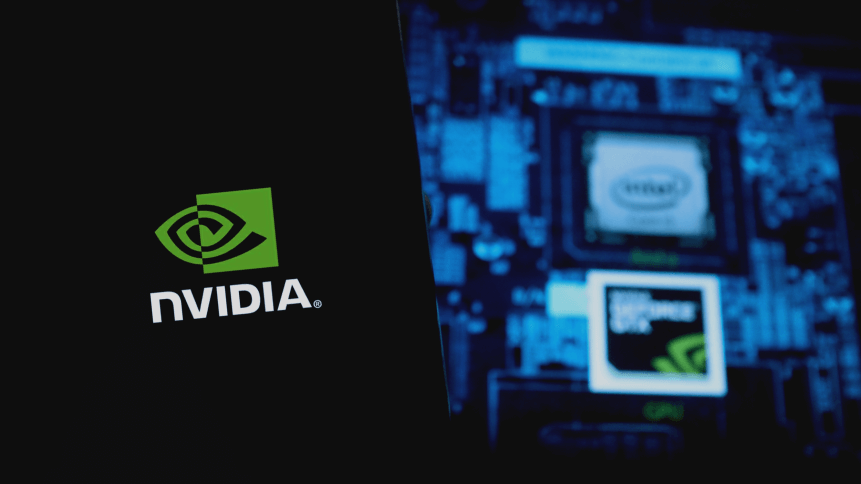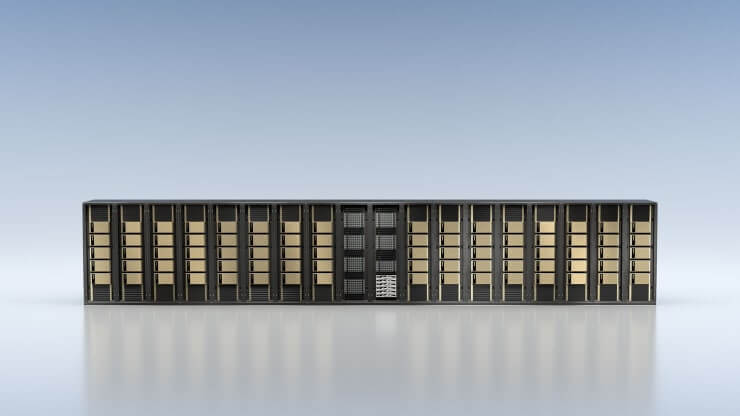Nvidia – chipmaker set to build the UK’s biggest supercomputer

- US chip giant Nvidia will build Britain’s most powerful supercomputer for US$52 million in Cambridge, England, to help researchers solve pressing medical challenges, including those related to COVID-19
- The ‘Cambridge-1’ supercomputer will be used for AI research in healthcare and is expected to launch by the end of the year
- Researchers at GSK and a number of medical colleges will take advantage
The race for a Covid-19 vaccine is a priority for many scientists around the world. To date, a vaccine has yet to materialize, but new insights gleaned with the help of supercomputer capabilities have illuminated how the novel coronavirus causes disease and suggest potential therapies to treat its worst symptoms.
In the most recent developments, US chip giant Nvidia will build Britain’s most powerful supercomputer for US$52 million in Cambridge, England, to help researchers solve pressing medical challenges, including those related to COVID-19.
Dubbed ‘Cambridge-1’, the supercomputer will be used for artificial intelligence (AI) research in healthcare and is expected to launch by the end of the year.
“The Cambridge-1 supercomputer will serve as a hub of innovation for the UK, and further the groundbreaking work being done by the nation’s researchers in critical healthcare and drug discovery,” said Jensen Huang, founder, and CEO of Nvidia, in his GPU Technology Conference keynote speech.
Researchers at pharma giants GSK and AstraZeneca, as well as medical institutions Guy’s and St Thomas’ NHS (National Health Service) Foundation Trust, King’s College London, and Oxford Nanopore will take advantage of the supercomputer’s capabilities once it is ready.
Nvidia claims that Cambridge-1 will rank in the top three most energy-efficient supercomputers in the world and is expected to have 400 petaflops of “AI performance”. The supercomputer will be powered by 80 Nvidia systems being connected and can be set up in a matter of weeks.
Nvidia’s announcement of the supercomputer follows hot on the heels of the group’s public intention to buy British rival Arm from Japan’s SoftBank for US$40 billion. Cambridge-1, however, is not considered a commercial endeavor with revenues not expected to be generated.

The Cambridge-1 supercomputer. Source: Nvidia (acquired by CNBC)
Super solutions?
Since the outbreak of COVID-19, several collaborative artificial intelligence projects have helped researchers process relevant data faster to better understand the coronavirus. Other notable successful niche applications include DeepMind, Facebook AI Research, and Microsoft’s AI for Health.
In March, a machine-learning method called “free modeling” was used by DeepMind to detail structures of six proteins associated with SARS-CoV-2, which is the coronavirus that causes the COVID-19 disease. While a UK start-up founded by Viagra co-inventor David Brown used AI to look for COVID-19 drug treatments, an Israeli start-up, Aidoc used AI imaging to flag abnormalities in the lungs.
Facial recognition systems built by UK firm SCC have also been adapted to spot coronavirus sufferers, while Oxford-based, Exscientia has teamed up with Diamond Light Source to screen more than 15,000 drugs to see how effective they are as coronavirus treatments.
Albeit these initiatives were unveiled at the beginning of the global onset of the pandemic, artificial intelligence has since somewhat taken a bit of a backseat in the fight against COVID, with many commenting on how the pandemic has exposed AI’s limitations.
“It’s fascinating how quiet it is,” said former director of machine learning at Amazon Cambridge, Neil Lawrence in April. “This (pandemic) is showing what bulls—t most AI hype is. It’s great and it will be useful one day but it’s not surprising in a pandemic that we fall back on tried and tested techniques,” added Lawrence.
YOU MIGHT LIKE

Stranger than fiction? Why we need supercomputers
Britain’s health minister, Matt Hancock, welcomes the news by emphasizing the importance of drug discovery and how the investment can make a real difference in the battle against COVID-19. “Nvidia’s new supercomputer will aid the UK’s best and brightest to undertake research that will save lives,” said Hancock in a statement.
This latest supercomputer news is undoubtedly a positive step for drugmakers and researchers looking to further their understanding of building vaccines for COVID-19. While the growing role of AI in medical research is reaching a crossroads – with leading researchers acknowledging the role AI will play in their work, and the lack of resources to meet their own demand – the drive to get more deeply involved with big tech companies could produce fresh, ground-breaking results and scientific discoveries that can bring a real impact in the UK and globally.









